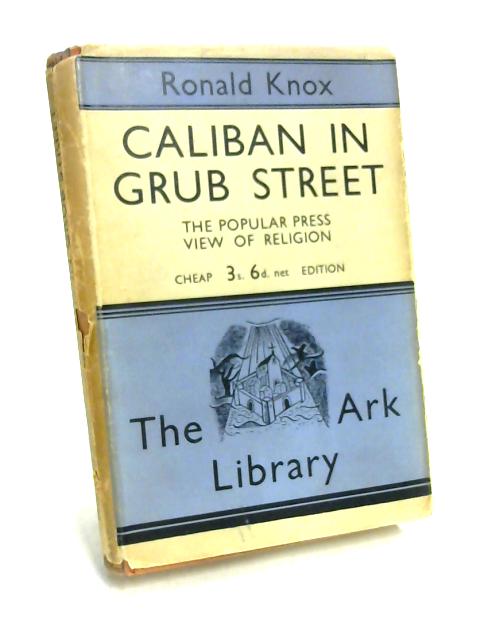 Caliban in Grub Street by Ronald A Knox, 218 pages
Caliban in Grub Street by Ronald A Knox, 218 pages
In Caliban in Grub Street, the redoubtable Msgr Knox turns his attention to the religious opinions of the common Englishman of 1930, through a series of articles and essays published in the popular press, including works by such luminaries as Arthur Conan Doyle, Bertrand Russell, Hugh Walpole, and Rebecca West. What he discovers is that most of them reject religion, but they do not do so because their reason demands it, but rather because they reject reason, or at least they deny that reason can be applied to matters of the spirit. For Knox, this accounts for the modern preference for spiritualism over religion - spirituality being to religion what sentimentality is to emotion - and the fuzziness of thought found even among those who outwardly profess religion.
Needless to say, Knox is emphatically not among those who reject either reason or religion, and it is a pleasure to follow him as he examines these journalistic efforts, uncovering their hidden inconsistencies, craven ambiguities, and patent nonsense. For Knox's God is not only reasonable, but the source and ground of reason, and therefore also no lagniappe to a satisfying life, but the condition of all human fulfillment.
No comments:
Post a Comment